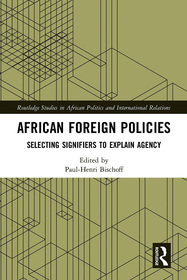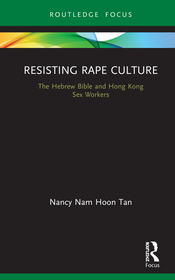
African Foreign Policies
Selecting Signifiers to Explain Agency
Series: Routledge Studies in African Politics and International Relations;
- Publisher's listprice GBP 41.99
-
20 060 Ft (19 105 Ft + 5% VAT)
The price is estimated because at the time of ordering we do not know what conversion rates will apply to HUF / product currency when the book arrives. In case HUF is weaker, the price increases slightly, in case HUF is stronger, the price goes lower slightly.
- Discount 20% (cc. 4 012 Ft off)
- Discounted price 16 048 Ft (15 284 Ft + 5% VAT)
Subcribe now and take benefit of a favourable price.
Subscribe
20 060 Ft

Availability
Estimated delivery time: In stock at the publisher, but not at Prospero's office. Delivery time approx. 3-5 weeks.
Not in stock at Prospero.
Why don't you give exact delivery time?
Delivery time is estimated on our previous experiences. We give estimations only, because we order from outside Hungary, and the delivery time mainly depends on how quickly the publisher supplies the book. Faster or slower deliveries both happen, but we do our best to supply as quickly as possible.
Product details:
- Edition number 1
- Publisher Routledge
- Date of Publication 29 August 2022
- ISBN 9781032400266
- Binding Paperback
- No. of pages288 pages
- Size 234x156 mm
- Weight 640 g
- Language English
- Illustrations 3 Illustrations, black & white 291
Categories
Short description:
This book explores, at a time when several powers have become serious players on the continent, aspects of African agency, past and present, by African writers on foreign policy, representative of geography, language and state size.
MoreLong description:
This book explores, at a time when several powers have become serious players on the continent, aspects of African agency, past and present, by African writers on foreign policy, representative of geography, language and state size.
In the past, African foreign policy has largely been considered within the context of reactions to the international or global “external factor”. This groundbreaking book, however, looks at how foreign policy has been crafted and used in response not just to external, but also, mainly, domestic imperatives or (theoretical) signifiers. As such, it narrates individual and changing foreign policy orientations over time—and as far back as independence—with mainly African-based scholars who present their own constructs of what is a useful theoretical narrative regarding foreign policy on the continent—how theory is adapted to local circumstance or substituted for continentally based ontologies. The book therefore contends that the African experience carries valuable import for expanding general understandings of foreign policy in general.
This book will be of key interest to scholars and students of Foreign Policy Analysis, Foreign Policy Studies, African International Relations/Politics/Studies, Diplomacy and more broadly to International Relations.
MoreTable of Contents:
1. Introduction 2. What Next? Past and present African foreign policy concepts and practices 3. The African Union as a Foreign Policy Player: African Agency in International Cooperation 4. Unprincipled Pragmatism and Anti-Imperialist Impulses in an Interconnected World: The Zuma Presidency, 2009-2017 5. Towards A Strategic Culture Approach to Understanding and Conceptualising Ethiopia’s Foreign Policy Towards Israel and the Middle Eastern Arab Countries 6. Nigeria’s Foreign Policy and Intervention Behaviour in Africa: What Role for Agency? 7. Zimbabwe and New Signifiers: Towards a cultural political economy of Foreign Policy Making 8. Realist Conceptions of Kenya’s Foreign Policy and Foreign Policy Behaviour: A Theoretical and Contextual Disposition 9. Addressing the Conceptual Void of African Small State Foreign Policy in Orthodox Theory: A Case Study of Botswana's Principled Pragmatism 10. Tunisia’s Foreign Policy Towards France Before and After an Undemanding ‘Revolution’: A Theoretical Explanation of the An-Nahdha-led Interim Governments’ Soft Policy 11. Straddling Between Convergence and Divergence: A Constructivist’s View of Malawi’s Foreign Policy in Post-independence Africa 12. Strategies of a Small State Between Realism and Liberalism: Sixty Years of Guinea’s Diplomacy and Foreign Policy (1958-2018) 13. Rethinking SADC’s Collective Policymaking Processes on External Relations and Non-state Participation for Region-building 14. Towards an Understanding of the Interplay Between Ghana’s Foreign and Defence Policies 15. Conclusion
More





